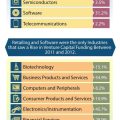What Is A Seed Accelerator? Seed Stage Venture Capital Financing
A startup accelerator also referred to as a seed accelerator, is a form of a business incubator that is chasing profit by usually acquiring a part of a business and then helping the latter to grow. Its main purpose is to help high-potential business ideas with mentoring, office space, know-how, education, and of course seed capital in exchange for a piece of the equity of the new business. The support is for a certain period of time ranging from 3 to 18 months and it is usually provided at the very beginning of a start-up. Business incubators are different from seed accelerators because they are usually non-profit, government-funded organizations that don’t take a stake in the business and are focused on broad types of ventures. Seed accelerators are usually, but not only, focused on high technology companies and businesses that could be scaled relatively quickly broadly, usually, companies already have their own successful products/services that could be widely spread with the help of the accelerator.
The main advantages of seed accelerators are:
* application procedure is open to anyone with a cool business idea – however, the acceptance criteria are usually high and the startups that make it are usually 1%-4% of all that apply for seed financing.
* investment in the new company is made (usually around $20k – $50K but the amount may vary widely) in exchange for equity
* target companies are founded by small teams, not single entrepreneurs
* the accepted companies have to graduate in a predefined period (3-18 months), in which they receive mentoring, training, know-how, and other help.
* the training support happens in groups of many founders
Benefits of seed accelerators
There are many benefits that come from these organizations. Some of them are:
* mentoring and receiving professional know-how – this is a big help for a person who has an awesome technical idea but lacks the knowledge about how to turn it into a business – a very common case among tech entrepreneurs.
* meeting new entrepreneurs and making new business connections – in business networking is very important.
* start-up funding – the money that is so important for the taking off of a great business idea.
* access to special technologies and resources – usually seed accelerators have sizable experience with starting companies and know what works well and what does not. Such knowledge can often be a big boost for a starting company.
* further support and a sound partner – by getting a part of the equity, the startup accelerator, which is usually a serious enterprise, becomes a formal and official partner in the business. Thus, the seed accelerator is very interested in the success of your business as they actually co-own it.
Where To Find A Seed Accelerator?
There are not too many seed accelerators, because this is a relatively new conception. The first one of them was launched back in the year 2005 and its name is Y-Combinator (the accelerator that initially invested in Dropbox, Airbnb, Docker, Coinbase, and many others). It was started not elsewhere but in Silicon Valley taking advantage of the wonderful business climate there. In 2006 was launched the accelerator TechStars, and a year later SeedCamp opened its doors in Europe. Currently, there are more than 300 startup accelerators around the globe and their number hasn’t stopped growing.
Here is a constantly updated list of almost all startup accelerators in the world:
In recent years, seed accelerator programs have grown in popularity among entrepreneurs looking for funding to get their businesses off the ground. This is because these programs offer entrepreneurs an opportunity to launch their product without taking on too much risk upfront; as well as create a head start that can help them quickly scale their businesses from product inception all the way up until customer acquisition. Moreover, by having access to experienced industry veterans that understand what it takes to build a successful business, participants can gain invaluable insights into how they should be running their operations or engaging potential investors down the line—something which makes them attractive alternatives to traditional venture capital investments.
Most investors in seed accelerator programs have extensive experience in the startup world so they often provide invaluable advice on managing operations or getting venture capital investments down the line. It is therefore possible for participants to leave a program having gained extraordinary expertise from experienced professionals—something which may prove invaluable when running their own business later on in life.
Seed accelerator programs are becoming increasingly used by entrepreneurs seeking very early-stage funding and mentorship while launching or scaling up their start-ups. It’s because these programs offer a wealth of benefits including free workspace, solid financial backing, invaluable investment advice as well as access to an extensive network of contacts in the industry all within three months or less depending on the program’s time structure. Ultimately it’s no surprise why early-stage startups are turning toward these programs for guidance when starting out—and this trend will likely continue for years to come.
Please consider providing us with some sharing of love, especially if you liked this post. You can use the mega-cool social buttons on the page.





